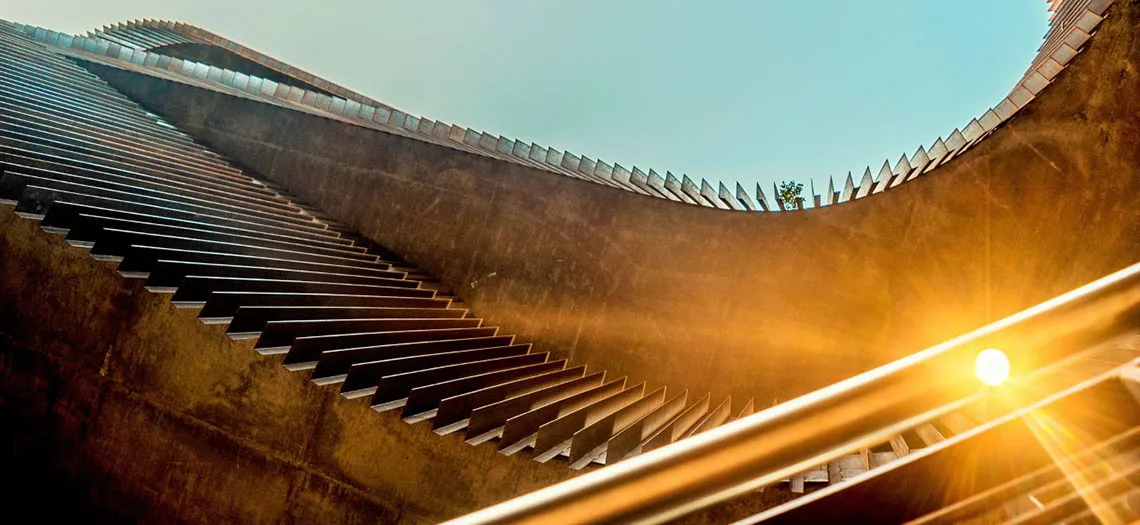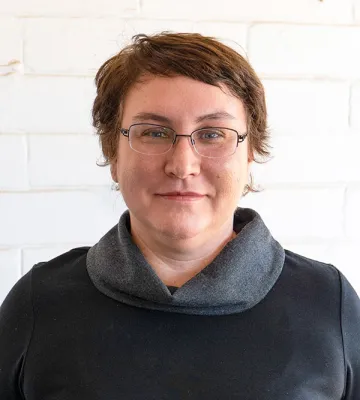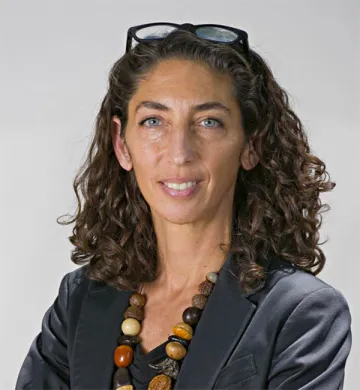‘Performative Environments’ Spark Insight and Activism at International Conference Hosted by UArizona School of Architecture

Though the Architectural Research Centers Consortium 2021: Performative Environments international conference hosted by the University of Arizona School of Architecture was held during the pandemic—and therefore online instead of on campus as originally planned—the gathering of many of the world’s most provocative built environment researchers was a resounding success.

Clare Robinson, Associate Professor of Architecture.
“The conference was a critical opportunity to curate a conversation around ‘performative environments’ in all their contexts,” says co-chair Clare Robinson, associate professor of architecture at the College of Architecture, Planning and Landscape Architecture. “The School of Architecture and University of Arizona were the home and the heart of that robust and meaningful conversation, one that will last well beyond the conference’s dates.”
Performative environments encompass a range of topics and scales, from buildings and their components to landscape and urban performances—and include structural, environmental and material systems and information networks.
As articulated in the conference call, technological performances of built environments are the dominant framework through which performance has been conceptualized. Yet “architecture and built environments succeed or fail according to a broad spectrum of performance criteria including the aesthetic, social, cultural, economic and political production and inhabitation of space,” writes Beth Weinstein, associate professor of architecture and the conference’s other co-chair. “The concept of performative environments, therefore, not only posits that people create and act upon buildings, but also that the latter have agency of their own. Which is to say: space performs!”

Beth Weinstein, Associate Professor of Architecture.
Drawing more than 230 participants, including nearly a hundred UArizona students, faculty members and attendees from the Tucson community, the conference featured a range of learning and networking opportunities—from workshops and panels to poster sessions and even virtual tours of campus and the surrounding region.
It took another kind of community to make the conference such a success. In addition to Robinson and Weinstein, CAPLA architecture professors Jonathan Bean, Susannah Dickinson, Altaf Engineer, Laura Hollengreen and Aletheia Ida played vital roles, from coordinating virtual exhibits, moderating panels and co-directing workshops to developing the conference’s graphic identity and web communications.
“Thanks to Beth, Clare and the rest of our faculty, ARCC 2021 was a major accomplishment for the School of Architecture, the college and the university,” says Robert Miller, director of the school. “Not only did they bring together a stunning diversity of researchers presenting the world’s foremost ideas on architecture and design, but they also demonstrated that at the University of Arizona, we are not just contributors to but shapers of essential emerging knowledge about our built environments.”
With the theme of “performative environments” in mind, the conference’s three keynote speakers challenged attendees on “what and how we do architecture, making us accountable to the realization that we need to stop talking about architecture and instead speak about space,” says Robinson.
University of London Professor of Spatial and Visual Cultures and founder of Forensic Architecture Eyal Weizman opened the conference’s first day with a revolutionary keynote address titled “Cloud Studies.” Referencing clouds of tear gas, herbicide, smoke and more, Weizman’s presented research bridging architecture and atmospheres, performance and politics, civics and climate change, concluding, “When naysayers operate across the spectrum to deny the facts of climate change just as they do of chemical strikes, those inhabiting the clouds must find new ways of resistance.” That set the activist tone for the conference.
Weizman was followed by Peggy Deamer, professor emerita of the Yale University School of Architecture and principal in the firm of Deamer, Studio. Deamer’s keynote on “Political Production/Architectural Performance” encouraged audience members to expand their perceptions of architectural practice and academia by upending the current institutions and practices that are holding architects back from being more inclusive, social and political. View Deamer’s keynote address.
Michelle Addington, Henry M. Rockwell Chair in Architecture and dean of the University of Texas at Austin School of Architecture, “poked holes in many paradigms with her ‘Research Redux’ address,” says Weinstein. Addington discussed how research happens, not in terms of how to do it but rather how to be alert to what is most important, stating that it is “crucial now to reimagine issues of diversity through the door of intellectual diversity.” View Addington’s keynote address.
ARCC 2021 also featured plenaries offering insights into performance praxis (Jon McKenzie, director of StudioLab and professor of practice at Cornell University), how architectural practices perform research (Billie Faircloth, a partner in KieranTimberlake) and why it’s important to push the boundaries on what performance is in relation to spatial research (Nicolas de Monchaux, professor and head of Architecture at the Massachusetts Institute of Technology). In total, the conference featured more than 40 dynamic sessions plus an online lounge that allowed participants to interact between sessions, recognizing the inherent value in unplanned connections at these seminal gatherings.
“We are honored and delighted to host ARCC 2021 and to be an integral part of these invigorating conversations,” says Dean Nancy Pollock-Ellwand. “The Architectural Research Centers Consortium has long been a leading organization for built environment research and scholarship, and beyond our wide faculty participation, I am particularly delighted that our students could be introduced to ARCC and the research culture it supports, for they are the makers of our future performative environments.”
Learn more about ARCC 2021: Performative Environments or download the full proceedings in PDF format.



